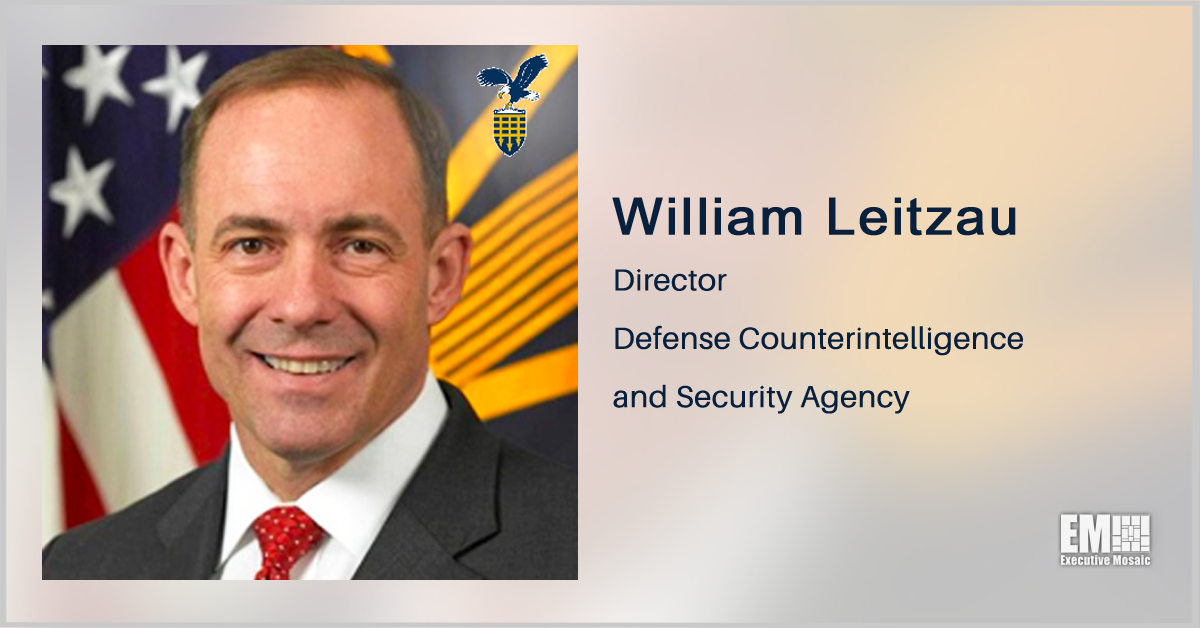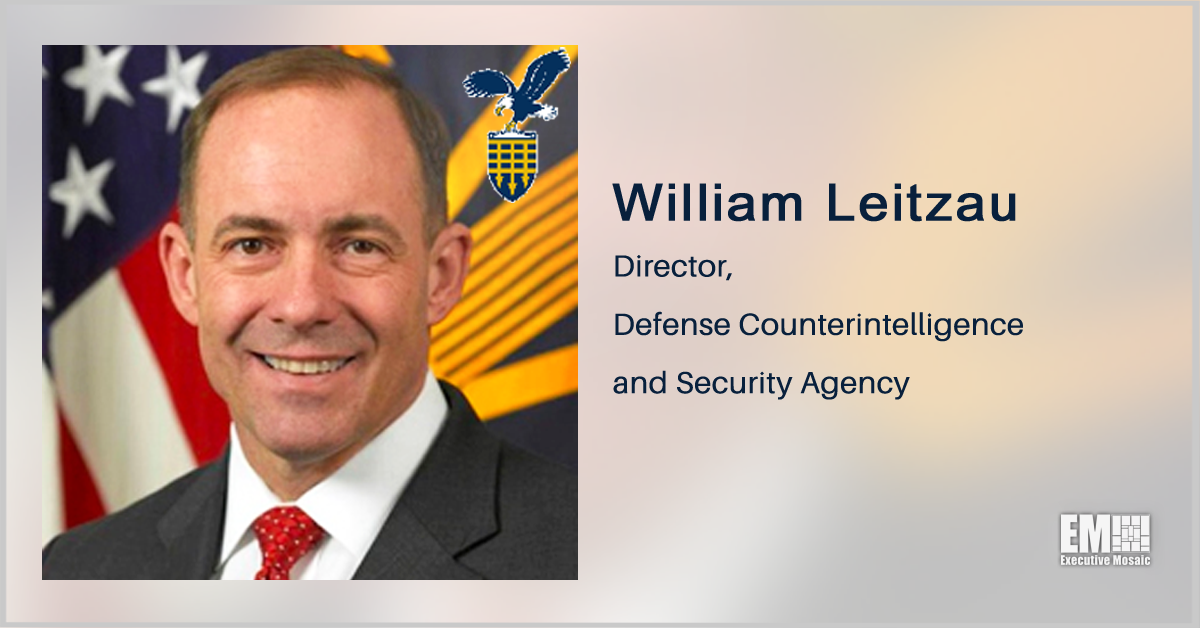Jeffrey Huth, vice president of TransUnion Public Sector, acted as moderator for an expert panel discussion during the Potomac Officers Club’s Trusted Workforce Forum on June 30th.
The following panelist discussed private partnership in the era of artificial intelligence and machine learning, featuring Heather Green of Defense Counterintelligence and Security Agency, Beth McGrath of Deloitte, David Buckley of KPMG Federal Services, Richard McComb of the Department of Homeland Security, Cindi Stuebner and Pegasystems and Mark Frownfelter of National Counterintelligence and Security Center (NCSC).
If you missed the Trusted Workforce Forum, you can still access the OnDemand footage by visiting Potomac Officers Club’s Event Page.
William Lietzau, director of the Defense Counterintelligence and Security Agency (DCSA), delivered the Forum’s keynote address. He explained his vision for trusted workforce efforts, upcoming major initiatives and private industry’s role in developing secure workforces. Julie Coonce, TranUnion’s senior director, introduced Lietzau before his address.
After the keynote, Mark Frownfelter, assistant director at the NCSC, opened the discussion by explaining that the pace of trusted workforce reform is quickening while the NCSC is building a policy foundation supporting Trusted Workforce 2.0. He also stressed that the relationship with the NCSC and DCSA is critical, stating, “we need to be in constant communication with DCSA as they build the new products and services in support of our policy.”
David Buckley, managing director at KPMG Federal service, added that developers and policymakers recognize that Trusted Workforce 2.0 is a brand new type of system with tremendous amounts of new information flooding it. He explained that Trusted Workforce’s artificial intelligence systems need to understand and work with vast amounts of new data.
In her remarks, Heather Green, assistant director of DCSA’s Vetting Risk Operations, explained how the DCSA is making significant progress in building a trusted workforce infrastructure. She said a critical element of personnel security reform is implementing a continuous vetting process that will increase security clearance speed and efficiency for government agencies.
Richard McComb, chief security officer of the Department of Homeland Security, also discussed continuous vetting in his remarks. He said that continuous vetting is crucial because it prevents a once-trusted employee from becoming an unrecognized insider threat. McComb agreed with David Buckley that AI needs to be effectively incorporated into trusted workforce systems as well.
Beth McGrath, global government and public service leader at Deloitte, commented that the whole trusted workforce landscape has recently changed. She said that an effective, trusted workforce now requires input from many more teams from diverse backgrounds than ever before, including policymakers, cybersecurity professionals, AI/ML experts and others.
Cindi Stuebner, futurist and senior director at Pegasystems, commented on how AI capabilities can be usefully enabled for all stages of the trusted workforce process, including continuous vetting. Stuebner added that “AI can not only make Trusted Workforce 2.0 more efficient but more effective.”
If you missed the Trusted Workforce Forum, you can still access the OnDemand footage by visiting Potomac Officers Club’s Event Page.

Join us for the next event on July 8th, when the Potomac Officers Club will host its 2021 Air Force Acquisition Forum. Visit PotomacOfficersClub.com to register for the 2021 Air Force Acquisition Forum on July 8th.
At the 2021 Air Force Acquisition Forum, Darlene Costello, acting assistant secretary of the U.S. Air Force for Acquisition, Technology and Logistics, will act as keynote speaker. In her address, Costello will discuss her perspective and priorities for the Air Force’s relationship with private industry and the successes of the Air Force’s acquisition process and culture.






